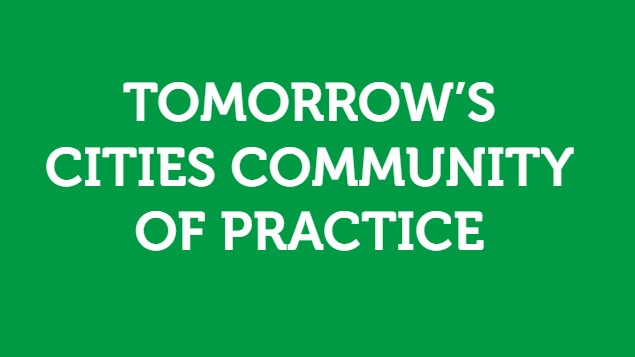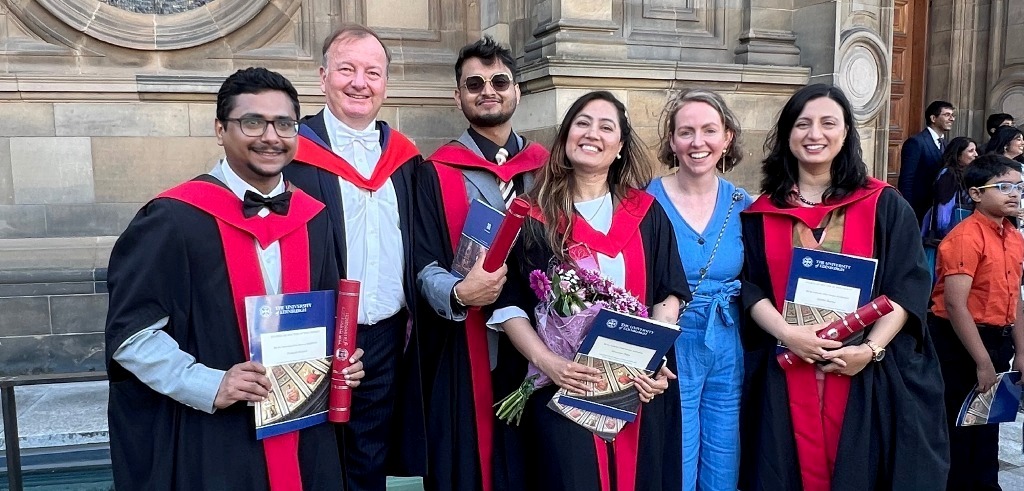
- Close
06/12/2024 |
Call for Papers – Environment and Urbanization

Environment and Urbanization
Tomorrow’s cities: Co-designing urban futures for equitable resilience
Call for papers – special issue to be published April 2026
www.environmentandurbanization.org/themes-future-issues
The combined pressures of climate change and rapid urbanization present immense challenges to our cities and their current and future inhabitants. But with change comes opportunity. Who will benefit from this changing physical and social environment and its governance system? Past experience suggests that changing conditions in urban/natural environments do not easily result in equal benefits to different groups, and that those persistently marginalized have few spaces to shape the future. This is already observed for example where urban housing markets or policy generate precarious housing in areas exposed to natural hazards, whilst dominant groups are better insulated in less exposed neighbourhoods with enhanced infrastructure. In this model, climate change and rapid urbanization are set to accelerate already established trajectories of inequitable development including (and to some extent driven by) the concentration of risk amongst the less wealthy and poor majority.
Challenging this default setting for development and its spiral into risk as a marker of inequity requires decision-support mechanisms that can offer alternative visions of the future. Visions that can be tested against plausible hazard events (related to and compounding with climate change) and so help define specific action points for revising policy and planning in enabling environments. Such mechanisms will work best when combining scientific and place-based inputs, so that difficult decisions can be approached in ways that are considerate of diverse voices and meaningful to local groups.
Greater emphasis on the enabling environment for shaping the future of cities to bring equity in resilience – and equity through resilience – responds also to the United Nations Habitat Assembly resolution adopted on 9 June 2023 to create a human settlements resilience framework for early warning, foresight, risk reduction, crisis response and post-crisis recovery and reconstruction. Urban planning techniques offer specific purchase on these elements with scope for hybrid methodologies between planning and proactive risk management/climate change adaptation.
Urban Shaping describes those methods that aim to get ahead of formal urban planning and design to open up additional procedural opportunity for inclusion and the localization of decision-making. This becomes especially important where urban change is rapid and at scale with pressures to prioritize efficient over inclusive decision-making or to move swiftly to rolling out land-uses and designs to meet established dominant urban development interests. Urban Shaping and similar approaches go beyond the limits of urban planning to allow more propositional visions and plans for land-use/building/urban space that aims at breaking cycles of risk accumulation through deploying inclusive and science-based futures methods.
This special issue invites contributions from researchers, professionals and policy makers to showcase methodologies and experiences for Urban Shaping that can go beyond the limits of urban planning to allow more propositional visions for land-use and building design aimed at breaking cycles of risk accumulation through deploying inclusive and science-based analysis. We are particularly interested in approaches that are:
- Inclusive and co-produced – integrating science and policy, local and technical knowledge and different sectors;
- Forward-looking – engaging with long-term planning tools and interdisciplinary methods of future visioning, foresight and scenario thinking;
- Risk-sensitive – incorporating a focus on disaster risk reduction, acknowledging the effects of multiple hazards in cities and understanding that climate change and rapid urbanization will continue to exacerbate their impacts;
- Committed to equitable outcomes – considering how hazard and its associated risk (and the consequences of risk management and climate change adaptation interventions) can be measured and tracked across society.
The special issue will bring together work from across sciences and from policy makers and local actor viewpoints to help define the action space to support a movement towards inclusive risk-informed urban planning.
We invite submissions responding to questions that include:
- What might the role be for urban development planning and connected processes of natural hazard risk assessment, in challenging negative spirals of inequity under climate change and rapid urbanization?
- What examples are there of inclusive and risk-informed decision-making on urban planning? To what extent, and in which ways, are these engaging with long-term future approaches?
- What evidence is there that such approaches lead to more equitable outcomes?
Format
While the majority of submissions are expected to be in standard peer review journal paper format, non-traditional formats are encouraged, specifically short perspectives from urban professionals, politicians and local actors partnering with or applying the novel approaches described. Annotated photo or art work submissions will also be considered.
Submission guidelines
Please consult the general journal submission guidelines in advance of making your submission: https://journals.sagepub.com/author-instructions/EAU. Please note that final submissions must be made using the journal’s submission system: https://mc.manuscriptcentral.com/eauj.
Deadline
The closing date for complete submissions is 15 July 2025. Short expressions of interest are welcome any time before 16 June 2025.
Contact
Please contact Jenny Peebles, E&U Managing Editor, to submit an expression of interest or with any queries: Jenny.Peebles@iied.org.
Guest editors
Senior editor:
Mark Pelling (Professor of Risk and Disaster Reduction, Department of Risk and Disaster Reduction, University College London) is a specialist in climate change adaptation, disaster risk reduction and urban governance with a focus on global South cities. Email: mark.pelling@ucl.ac.uk
Co-editors:
Thaisa Comelli (Senior Research Fellow, Department of Risk and Disaster Reduction, UCL) is an urban planner specialising in participatory and community-led approaches to urban development, climate adaptation and resilience, especially in the global South.
Gemma Cremen (Lecturer, Department of Civil, Environmental and Geomatic Engineering, UCL) is a specialist in engineering approaches to risk assessment, physical vulnerability modelling and decision-support frameworks.
Jeremy Phillips (Professor, School of Earth Sciences, University of Bristol) is a natural hazards specialist with a background in volcanology and interest in communication of risk, citizen science and working in data scarce contexts.
Elisa Sevilla Perez (Professor, Universidad San Francisco de Quito, Ecuador) is an historian of science and society with a focus on environmental change including natural hazard science, its understanding and popular communication.



